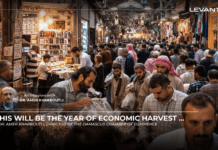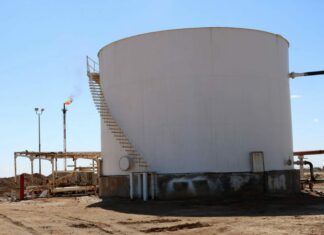
A Syrian refugee deported from Turkey died in the custody of the Assad regime after being returned to Syria, raising alarm about the systemic dangers faced by Syrians repatriated to Assad-controlled areas. The case underscores the threats posed by the Assad regime and its allies, especially to Syrians who have previously lived abroad or in areas outside the regime’s control.
According to local sources, 33-year-old Syrian engineer Abdul Ghani Munir, who had fled to Turkey, died in the notorious Military Security Branch in Aleppo, following his deportation. Munir, who leaves behind a wife and two children, was reportedly tortured to death after being arrested by regime forces at a checkpoint shortly after his return.
Munir’s troubles began a year ago when a financial dispute with a Turkish citizen led to his arrest in Gaziantep, Turkey. Although his family hired a lawyer and paid $2,000 to prevent his deportation, Turkish authorities sent him to the Syrian border town of Jarabulus. Munir returned to Turkey illegally, but his second attempt to secure temporary protection, known as a Kimlik, ended in further detention and deportation.
Struggling to return to his family in Turkey, Munir eventually gave up and moved to Azaz in northern Syria, a region outside regime control. Despite paying fees for military service and clearing his name through a regime “settlement,” he was arrested upon entering Aleppo. After 24 days of detention, his family was asked to retrieve his body, with no explanation provided for his death, though it is widely believed he died under torture.
The death of Munir comes as the Assad regime continues to claim it welcomes the return of refugees. Assad’s Foreign Minister Faisal al-Miqdad recently asserted that the regime has dropped political and security rulings against returnees and has not arrested any Syrian refugees who have returned. In a dialogue with Egyptian media, al-Miqdad claimed, “We have dropped all political and security rulings against Syrians,” while calling for Western nations to support refugee returns rather than impose sanctions on Syria.
However, Munir’s case directly contradicts these claims, highlighting the peril returning refugees face. Human rights groups have repeatedly warned that the Assad regime continues to target individuals who lived in areas previously outside its control or who sought asylum abroad.
Munir’s death is not an isolated incident. The Syrian Network for Human Rights (SNHR) has documented at least 4,714 cases of arbitrary arrest of returning refugees and internally displaced persons by regime forces. A report by Human Rights Watch (HRW) in July criticized efforts by European nations to promote “safe zones” in Syria, calling the idea a “dangerous illusion.”
The risks are particularly acute for Syrians deported from neighboring countries like Lebanon and Turkey. In August alone, SNHR reported the arbitrary arrest of 214 Syrians, including 19 who had been forcibly returned from Lebanon. Amnesty International reiterated in May that there is no part of Syria considered “safe for refugee returns,” a sentiment echoed by the UN.
The UN High Commissioner for Refugees (UNHCR) has repeatedly stated it does not encourage large-scale “voluntary returns” to Syria, citing ongoing security and economic instability. Najat Rochdi, the UN’s Deputy Special Envoy to Syria, emphasized that the conditions for safe returns have not been met.
In addition to the dangers faced by returning refugees, there are increasing reports of mass arrests by the Assad regime targeting Syrians who have traveled to or lived in liberated areas. At the beginning of September, 200 Syrians were arrested after visiting areas of northern Syria outside regime control, further raising concerns about the regime’s approach to perceived political dissent.
Lebanese politician Samir Geagea has also been vocal about the Assad regime’s true intentions regarding refugees. He argues that the regime does not want refugees to return, citing sectarian motivations aimed at altering the country’s demographic balance. Geagea, in an interview with Al-Arabiya FM, explained that while he does not oppose dialogue with the Assad regime regarding refugee returns, he remains skeptical that any meaningful progress will be made.








